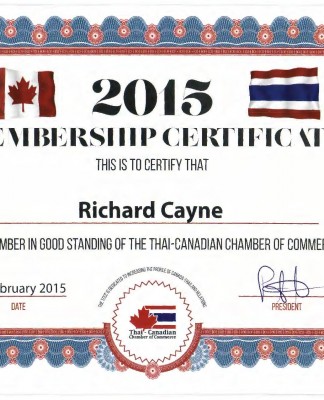When most people hear about “offshore” investing, they immediately think of some dark, possibly illegal dodge to hide money. This is not so. Yes, there are those who would use offshore investment products for suspicious ends, but there are plenty of legitimate, prudent reasons to consider offshore products for your portfolio.
“Offshore investments have many benefits for the individual investor, whether they live in their home country or are expatriates,” says Richard Cayne of Asia Wealth Group and Meyer International in Bangkok, Thailand. “It is important to be aware of all your choices so that you can build a sound, protected portfolio that grows in value.”
You have greater flexibility with investments offshore
Economic uncertainties impact different types on investments differently, and one of the factors that can determine this impact is where they are based. Certain jurisdictions, such as the Isle of man or Luxembourg, have strong regulations that protect investors while not being as restrictive as other countries. So, if you decide to invest money through providers in these international investment centers, you can gain access to a wider range of funds, bonds, commodities, and structured products than you would at home.
Diversify to multiple currencies offshore for an investment hedge
This flexibility and greater selection of products includes the ability to invest in different currencies as well. Although many people believe in the supremacy of the US dollar, there are others who would suggest diversifying your holdings to other currencies as a protective hedge against significant shifts in the dollar’s value. There are alternative currencies, such from the Swiss franc to the Japanese yen, whose values are not as tied to the US dollar.
Offshore may provide more confidentiality than at home
Depending on your home or resident country, you may not be comfortable with disclosure laws or investor protections. Seeking confidentiality and protection is not just to hide your assets for nefarious means. Some countries may have laws that are more lenient on information breaches, so it is well within your rights to seek investments that are protected from unnecessary disclosures. That being said, even the most investor-friendly jurisdictions may have to comply with the Common Reporting Standards.
And there are other advantages of going offshore
And of course, there are the tax advantages of offshore investments. But these instruments are not for avoiding taxes – they provide you with more options as when and how you are taxed. Also, if you are an expat or plan on moving around during your lifetime, you may find yourself having to cash out accounts or move funds from different banks, employee pension plans, etc. But your offshore investments stay where they are, hopefully earning money for you as you get on with your life.
Nevertheless, offshore investing requires careful consideration. Contact a trusted financial consultant like Richard Cayne who specializes in offshore products and who can walk you through your various options, helping you select what offshore investment is best for you.
Richard Cayne resides in Bangkok, Thailand














